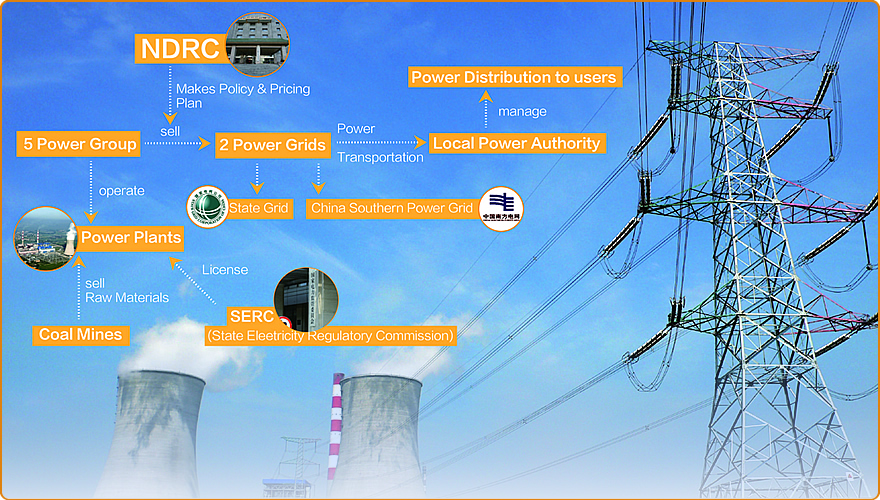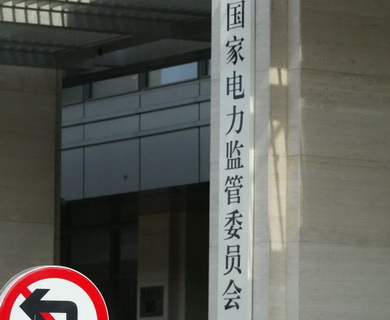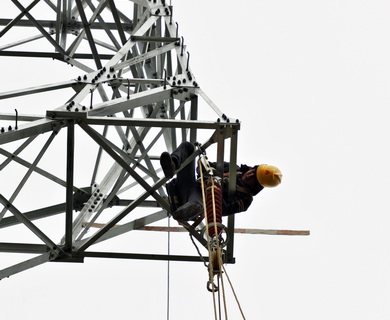

Introduction
For the past decade, China's power industry has grappled with a number of tough questions. Should electricity prices be set by the government or the market? Is it better to have one national power grid or several regional grid companies? Does China really suffer from severe power shortages, or is it just a matter of inefficient energy allocation?
These are the issues that reformers faced as they tried to establish an open and competitive market for power generation and transmission in China. However, even key stakeholders are still unclear whether any real progress has been made.
Over the past 10 years, experiments have been started and then cancelled; plans made, then changed.
Grid allocation, for instance, was supposed to shift electricity transmission from state control to the open market. However, the massive government-owned State Grid (国家电网公司) continues to expand its influence.
Many reforms have been further complicated by sudden policy changes that have altered the role of industry regulators and other decision makers.
Throughout the reform period, two core issues have remained key - separating generators from transmitters and regulators from players.

Economic Observer

In 1996, the State Electric Power Corporation (SEPC) was founded. At that time, the relationship between employees of the SEPC and the Ministry of Electricity and Industry was very complex, with some individuals holding dual roles as both owners and power industry regulators.
Economic Observer

The second step of the reforms - breaking up the monopoly - wasn't easy. At the end of 1998, the NETC selected six provinces to trial the separation of power generating companies from grid companies; so six regional grid companies were established accordingly.
Economic Observer

The State Electricity Regulatory Commission (SERC) is currently working on provisions to allow private capital to invest in the power industry – both the generating sector and the national grid, which until now has always been a state monopoly.
The commission will allow investors into sectors such as thermal power, hydropower and nuclear power, and, say people familiar with the issue, these investors may be able to hold stakes in the national grid but with more restrictions.
Economic Observer

In 1999, the State Council announced that the country wouldn't start any more big electricity projects for three years, which caused major power shortages in 2002. In 2004, these shortages were raised to the level of serious national problems.
That was just the beginning. In 2008 and 2010, national power shortages hit again. While the 2008 shortages were due to inadequate capacity, the shortages in 2010 were attributed to the combination of inflated coal costs and stagnant electricity prices.
Economic Observer

The State Electricity Regulatory Commission (SERC) is currently working on provisions to allow private capital to invest in the power industry – both the generating sector and the national grid, which until now has always been a state monopoly.
The commission will allow investors into sectors such as thermal power, hydropower and nuclear power, and, say people familiar with the issue, these investors may be able to hold stakes in the national grid but with more restrictions.
Economic Observer

The State Electricity Regulatory Commission (SERC) is currently working on provisions to allow private capital to invest in the power industry – both the generating sector and the national grid, which until now has always been a state monopoly.
The commission will allow investors into sectors such as thermal power, hydropower and nuclear power, and, say people familiar with the issue, these investors may be able to hold stakes in the national grid but with more restrictions.